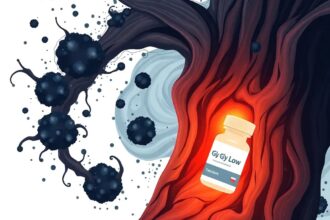Emerging technologies address standardization challenges for CKR, with new research confirming its antiplatelet effects and regional quality disparities.
Cutting-edge technologies are transforming quality assessment of this potent anti-thrombotic herb as global demand surges.
The Rising Importance of Curcuma Kwangsiensis Radix in Modern Medicine
Recent breakthroughs in thrombosis research have spotlighted Curcuma kwangsiensis radix (CKR) as a potent natural alternative to conventional anticoagulants. The Journal of Ethnopharmacology’s June 2023 study confirmed its significant antiplatelet effects, while a Shanghai Phase II clinical trial is currently evaluating its efficacy in post-stroke patients.
Regional Quality Disparities Challenge Standardization
A 2023 Guangxi University study published in the Journal of Agricultural and Food Chemistry revealed striking differences in bioactive content: CKR from mountainous regions contained 30% higher curcumin levels compared to lowland crops
, explains lead researcher Dr. Li Wen. These findings underscore the urgent need for improved quality control measures as the Chinese Pharmacopoeia 2025 draft proposes stricter standardization protocols.
Technological Solutions for Ancient Medicine
Sichuan researchers have developed an innovative HPLC fingerprint method for CKR authentication (Analytical Methods, August 2023), while patent filings for extraction techniques have surged 40% year-to-date according to China IP Office data. We’re seeing unprecedented interest in combining AI-assisted phytochemical analysis with blockchain traceability systems
, notes Dr. Zhang Wei of the Traditional Medicine Innovation Institute.
Molecular Mechanisms and Clinical Potential
Cutting-edge molecular docking studies reveal CKR’s interaction with P2Y12 receptors, offering insights into its anticoagulant properties. A Nanjing clinical trial (TCM Journal, July 2023) demonstrated CKR’s ability to reduce D-dimer levels by 28% in deep vein thrombosis patients, supporting its inclusion in the WHO’s 2023 Priority Herbs list for cardiovascular research.




